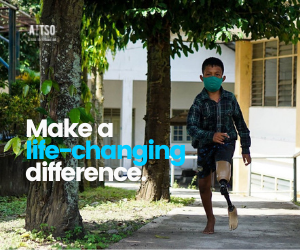Energy Crisis Shows Need For More Renewables
Energy prices have soared in the midst of the ongoing global political and economic crisis.
The invasion of Ukraine by Russia and a harsh, escalating programme of sanctions from the West have caused already rising oil and gas prices to rise further and faster.
Pre-invasion, commodity prices had already begun to increase significantly as first gas then oil prices rose in response to a global industrial recovery and rising energy demand while OPEC has been reluctant to increase production to ease price rises.
With economies, consumers and businesses feeling huge cost pressures, fundamental questions are being asked about energy supply, distribution and efficiency.
The situation also poses challenges for investors in sustainable energy regarding energy security, the energy mix and market, storage and even the speed of the transition.
These matters were debated at the WM Nexus Impact Investing Forum in London recently with policy advisers and investors including Dr Delia Dimitriu, Associate with Connected Places Catapult, who has advised the World Bank, the European Commission and countries across the ASEAN region, Jake Sumner, a strategic consultant and former adviser to UK government and opposition ministers and current adviser to local authorities and Angeles Toledo – lead fund manager of the Triodos Groenfonds and the Triodos emerging markets renewable energy fund.
Sustainable energy will bring energy independence
Our experts were first asked had the multi-faceted crisis in energy shifted the terms of the sustainability debate?
Toledo said the energy transition was more relevant than ever and, indeed, gives us the opportunity to establish energy independence from Russia.
Dimitriu had seen tangible progress at government level, but she warned that one government changing its mind could limit progress as we saw with India’s last minute demands regarding coal at COP 26 last year.
Identifying local based sources for renewable energy is the key. She is advocating for solar and waste to energy sources.
Dimitriu said change needed to come from the bottom up and local communities needed to see the benefits in terms of reduced costs and more jobs. That would apply in Europe too as it seeks to dramatically expand renewables.
Toledo said renewable investing was delivering across all criteria, making a positive environmental impact that was good for communities while also providing good risk adjusted returns.
“The costs of these renewable energies are dropping dramatically. Solar energy is even cheaper than oil. It is not just impact; it's economics,” she added.
Agreeing with Dimitriu, she said we need to decentralise and democratise energy and produce it where it is consumed, something that would contribute to solving not just local problems but also address geopolitical ones.
Sumner said the world needed to wean itself off the volatility of fossil fuels that had blighted economies for decades. He said the case for renewables in terms of security of supply, and low cost and fast pace of delivery needed to be made much more firmly and clearly and in turn prioritised in the energy strategy.
He also warned the fossil fuel lobby was not letting a good crisis go to waste – arguing for the reopening of or opening up of new coal mines, championing oil fields and erroneously claiming renewables are responsible for price hikes.
“These are bogus arguments. It's the paradigm we've had before, around fossil fuels. It won't come on stream fast enough or deliver enough and it is going to undermine our security by not meeting climate targets.”
He noted the business secretary had said such developments including fracking would not materially affect wholesale market prices.
“We should have full-throated calls for faster, renewable take up, and then look at taxation and legislation to encourage this. We should be doing everything to boost that supply and building the security and the social benefits that flow from it.”
Toledo was worried that in the crisis, governments would take a short-term approach at the expense of long-term structural reform.
Immediate fossil fuel shutdown not credible
However Dimitriu said it was not credible to argue for the immediate shutdown of fossil fuels.
“As a climate expert, I have to be realistic in terms of achieving net zero up to 2050. Taking fossil fuels out overnight is not the answer,, but accelerating renewable energy production during this transition is a MUST” she said.
“I have in mind the social aspects and logistics when I advocate for a low carbon to netzero transition. But it needs to be short, so 2030 should be a milestone for several European (developed) countries. I am not at all in favor of maintaining fossil fuels, but setting up a realistic and aggressive plan to phasing them out while scaling up the production of renewables should be the answer, in my opinion.”She said governments need to subsidise cleaner ways of using fossil fuels for at least eight more years and to monitor it. Technologies had been developed - she gave the example of Shell that had created solutions for aviation fuel – that emit carbon at levels closer to zero.
Dimitriu added: “If it's cleaner than it was 10 years ago, five years ago, it may function for a period of time, because otherwise, we don't have independent energy.”
Progress lost and progress to be made
At times however, governments and corporate vested interests could frustrate progress, for example, undermining solar power’s potential to bring independence to communities around the world so far, Dimitriu added.
Sumner said that in the UK in the previous decade or so, onshore wind had been effectively blocked while fracking was given s its own bespoke permissive planning environment.
He said the total cost of not developing renewables was not being factored into cost appraisals, including jobs not generated and health benefits not gained. He noted the UK had among the worst housing stock in Europe in terms of insulation yet the zero carbon homes target which would have come into being in 2016 was scrapped and more recently the green homes grant had been poorly rolled out, funding cut and then scrapped.
Toledo said it was really important not simply to pursue one source but to move forward on all renewable fronts. That meant wind, solar, hydro, batteries and tech in relatively early stages such as hydrogen and even carbon sequestration.
“It's not just the government, it is not just the investment, not just the research and development, but also the consumer. It's also what we do in our everyday life,” Toledo added.
Sumner said it can be problematical putting the onus primarily on individuals to meet the emissions reductions needed with systemic change needed so people can make the right choices. And a lot depended on how change was presented – in last year’s West Midlands mayoral election what cut through were not stories about net zero targets but about green manufacturing – where people can see a job for their children and improved air quality. The role of local authorities in policy development and implementation on climate action is key but are often cut out and the have not been given sufficient powers and funding to get where we need to be on net zero.
Dimitriu said a local approach also made sense in waste-to-energy technologies. Scaling up production should be accelerated, since the best known technologies are known to be in the UK.
“The end user in a community needs to be part of this. Starting from the source, you have a value chain, you have the source waste, then you have different processes, or technologies. But in the end, it is the end user who is permitted and enabled through local action to use this renewable energy putting local production to local use.”
Dimitriu added: “What is needed, like in any political system, is more transparency. And with the crisis, they - national & local governments - have to be more transparent. With consumer pressure, they have to unlock this pathway and be more open.”
Another benefit of local schemes would be more transparency on costs and the prices end users pay. Sumner cites the Orkney Islands community-owned wind generation scheme.
All the panellists worried about the effectiveness of energy grids with Dimitriu having seen the problems close up during her work with the World Bank. Grids are often very old, they need to be maintained and upgraded. Micro-grids need to be established, she said for local and regional use.
Toledo added: “From the investment perspective - more and more projects, particularly with companies, the Unilevers and Heinekens of this world, are now installing solar panels to produce their energy, meaning commercial industrial solutions with mini grids.”
Is it too late to invest in renewables?
It was put to the panel that we faced problems now, but with solutions that could not come on stream in time to resolve them.
While there wasn’t an easy answer, the panel suggested the speed with which new projects were being completed was increasing. The investment case was strong in any case, said Toledo.
“It's a sweet spot for investors because the main risks are, in the beginning, construction, but they're also typically debt not equity. But once that construction has taken place, and the project starts becoming operational, it's really a cash cow,” she added.
Delegates asked the panel about intermittency.
Sumner said that among other things, during a greater push towards wind and solar, hydrogen could act as a bridging technology to deal with intermittency and be stored to use in housing, trains and more. And if the retrofit of housing including insulation, took place this would help reduce energy demand.
Toledo added: “On intermittency, we're seeing a lot in terms of projects with batteries. In the beginning, it was challenging, because batteries don’t bring reliable cash flows for investors. But we have been able to structure battery projects along with wind farms in such a way that the cash flows are very well assessed, and it becomes bankable. Batteries are a solution right now. It is very exciting to see the costs are dropping dramatically and very good news for the world.”
The panel discussed some disappointment that the EU taxonomy had seen lobbying to include transition fuels in Germany’s case gas, and in France’s nuclear. Toledo would liked to have seen only renewables included.
But that aside, what reforms would the panel really like to see?
Sumner said the main focus had to be on the fact that renewables offer the more secure path not just given the Ukraine situation but also against the even greater threat of climate change.
Toledo said she would like tougher measures – for the government to bring more pressure to bear in terms of taxing carbon. “That's really where we see a quick win - taxing the polluters.”
Dimitriu said she wanted to see security for the future put at the heart of change and a redefinition of the quality-of-life indicators. “Start with security, then we have to rethink our priorities,” she said.
John Lappin is Contributing Editor at WM Nexus
© The Sortino Group Ltd
All Rights Reserved. No part of this publication may be reproduced, stored in a retrieval system or transmitted in any form or by any means, electronic, mechanical, photocopying, recording or scanning or otherwise, except under the terms of the Copyright, Designs and Patents Act 1988 or under the terms of a licence issued by the Copyright Licensing Agency or other Reprographic Rights Organisation, without the written permission of the publisher. For more information about reprints from AlphaWeek, click here.







